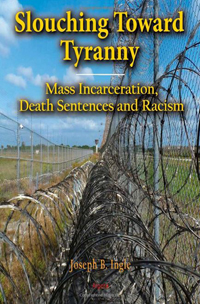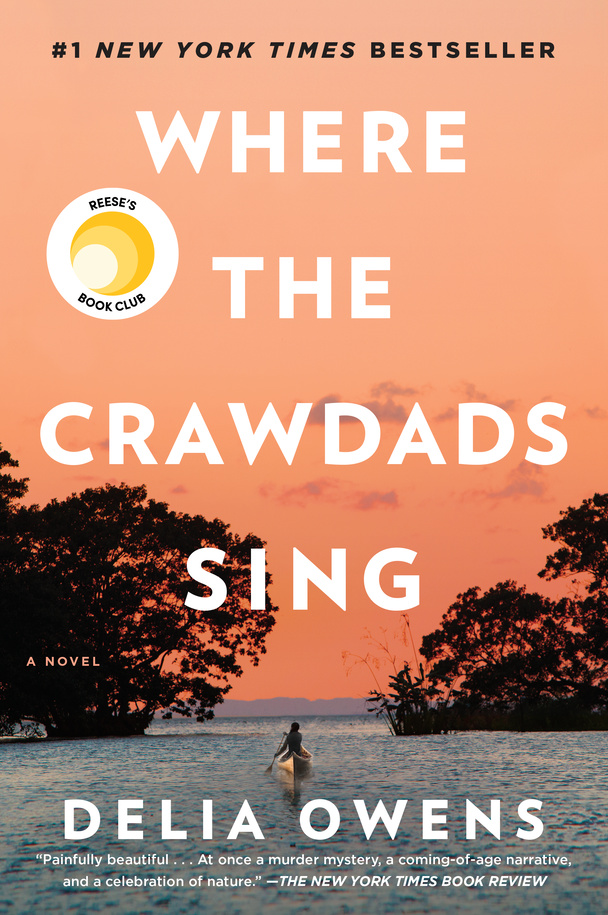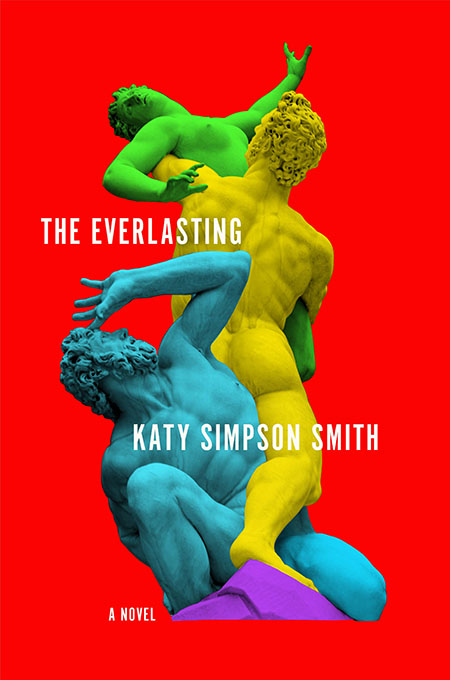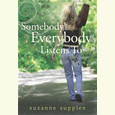Capital Offense
Veteran activist Joseph B. Ingle reveals the systemic racism behind America’s death penalty
A few years back I had some legal trouble and ended up, along with my well-paid attorney, in front of a judge. Everything would be OK for me. I would sleep in my own bed that night, but others in the dock would not. Black, Latino, and poor white men were getting jail time for committing the same misdemeanor for which I’d received merely a slap on the wrist. Joseph B. Ingle is well aware of this inequity, but his beat isn’t the county jail, where my fellow petty criminals would serve their forty-five or ninety days. A teacher, writer, and activist, Ingle has sat at the side of countless prisoners condemned to death. His newnbook, Slouching Toward Tyranny, indicts not just the death penalty but also the systemic racism that lies behind it.
 Joseph B. Ingle began ministering to inmates on death row in 1973. A former director of the Southern Coalition on Jails and Prisons and founder of the Tennessee Committee Against State Killing, he has also served as executive director of the Neighborhood Justice Center. Twice nominated for the Nobel Peace Prize, Ingle graduated from Union Theological Seminary and attended Harvard University on a Merrill Fellowship. A life spent on the front lines of the war against capital punishment has led him to this conclusion: in America, white life is more valuable than black life.
Joseph B. Ingle began ministering to inmates on death row in 1973. A former director of the Southern Coalition on Jails and Prisons and founder of the Tennessee Committee Against State Killing, he has also served as executive director of the Neighborhood Justice Center. Twice nominated for the Nobel Peace Prize, Ingle graduated from Union Theological Seminary and attended Harvard University on a Merrill Fellowship. A life spent on the front lines of the war against capital punishment has led him to this conclusion: in America, white life is more valuable than black life.
Slouching Toward Tyranny is Ingle’s third book about the death penalty. Like the work of activist-historian Howard Zinn, this book parses the accepted version of American history and finds that inequity is built in to the very framework of the nation. The irony that a country founded on notions of freedom can so blatantly disregard the rights of the minority is the substance of Slouching Toward Tyranny.
Ingle begins with the Puritan settlers, for whom slavery was nothing new. Like the Jews of Europe, brown people were to them an inferior brand of human—baptizable and trainable, but still inferior: heathen Africans were better off as baptized slaves. Enter America’s founding fathers. If you’ve ever wondered how freedom-loving Thomas Jefferson, the author of the Declaration of Independence, could own slaves until the day he died, Ingle breaks it down. The young Jefferson believed that slavery was evil, damaging to both slave and master, but abolition didn’t translate into equality. The Negro’s inferiority wasn’t due to his or her captivity, according to Jefferson; it was due instead to his or her nature, which was base and easily diverted. By the early 1800s, writes Ingle, America’s “racialist society” was so entrenched that Jefferson, now older and more conscious of political expedience, would never be called upon to reconcile his views on freedom with the interests of white slave owners, whom he eventually supported.
 Despite the passing of the 1875 Civil Rights Bill after the Civil War, Confederate interests held sway in the South, and organizations such as the White League and the KKK kept landholding and full citizenship out of black people’s reach. Jim Crow laws further entrenched the white oligarchy, which established penitentiaries to mete out punishment once solely the province of slave owners. Southern states created brutal work farms, such as Angola Penitentiary in Louisiana and Parchman in Mississippi, to supply free labor. “With no blacks on juries, no black judges, no black police, no black grand jurors, no black legislators, and only rarely a black lawyer, whites effectively determined who was punished and how,” Ingle writes.
Despite the passing of the 1875 Civil Rights Bill after the Civil War, Confederate interests held sway in the South, and organizations such as the White League and the KKK kept landholding and full citizenship out of black people’s reach. Jim Crow laws further entrenched the white oligarchy, which established penitentiaries to mete out punishment once solely the province of slave owners. Southern states created brutal work farms, such as Angola Penitentiary in Louisiana and Parchman in Mississippi, to supply free labor. “With no blacks on juries, no black judges, no black police, no black grand jurors, no black legislators, and only rarely a black lawyer, whites effectively determined who was punished and how,” Ingle writes.
So it went until the 1960s, when a new fight for desegregation began, and reforms brought a dramatic growth in the black middle class. In 1972, the Supreme Court struck down the death penalty, though it was reinstated only four years later. The death penalty—aimed at poor people of color—has been the law of the land ever since.
Though Ingle’s detailed account of this deliberate and systemic undermining of civil rights takes up four-fifths of the book, Slouching Toward Tyranny is more than a history lesson. Most importantly, it includes first-person accounts of Ingle’s own experiences on death row, which are interspersed between the historical chapters. Ingle has counseled numerous death row inmates and sat by their side during their final moments; these emotional encounters balance the book’s exhaustive academic arguments.
Ingle’s telling of his friend Willie Darden’s story is both frustrating and sad—and unfortunately a typical example of Ingle’s experiences on death row. A lifetime petty criminal, Darden, a black man, stood before an all-white jury in 1974; he was accused of killing a white man in Florida despite information from a white eyewitness that placed him elsewhere.
What followed is a pattern that Ingle would see repeated time and again as more black men ended up on death row. Darden’s defense attorney did no research, and the eyewitness’s testimony wasn’t allowed in court. The prosecutors expressed their wish to see Darden “with no face, blown away by a shotgun.” Initially the victim’s widow couldn’t remember what the suspect looked like or what he was wearing; later, though, she identified Darden—his was the only black face in the courtroom. After fourteen years and six stays of execution, Willie Darden gave Ingle a thumbs-up though the death-chamber window, and then he was electrocuted. He was almost certainly innocent.
Slouching Toward Tyranny is an undisguised polemic. Even in his more academic moments, Ingle can’t hide his passion for his subject. Balance isn’t his strong suit—words like “state killing” and “slaughter” pepper his account—but then how could it be otherwise, given what he’s experienced on the ground? It’s easy for armchair philosophers to talk of swift punishment and permanent incapacitation—they never looked Willie Darden in the eyes.

Paul Griffith is a freelance writer/musician based in Nashville whose interests include popular culture, religious history, and food and dining. Paul’s drumming can be heard on recordings by k.d. lang, Todd Snider, and many others.


